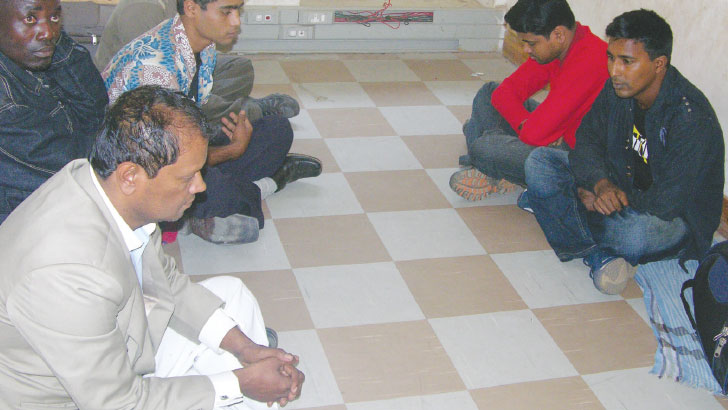Malawi for standard laws against human trafficking
Minister of Homeland Security Richard Chimwendo Banda has asked African countries to institute standardised legislation to end trafficking in persons and migrant smuggling.
The minister said this on Tuesday during a virtual meeting organised by United Nations Office on Drugs and Crime (UNODC) and the Nigerian Government to discuss challenges and emerging solutions on prosecuting trafficking in persons and smuggling of migrants on the continent.
He said: “Although efforts are being made to prevent, protect and prosecute human trafficking cases and smuggling of migrants, there are several challenges faced by prosecutors that need to be addressed, including limited skills and knowledge by law enforcement [agencies].

“The need for interpreters during investigation and prosecution of cases cause big challenges in prosecution of cases and some countries wish to repatriate their nationals even before they testify.”
According to UNODC, trafficking in persons is the recruitment, transportation, transfer, harbouring or receipt of people through force, fraud or deception, with the aim of exploiting them for profit. On the other hand, migrant smuggling is defined as the facilitation, for financial or other material gain, of irregular entry into a country where the migrant is not a national or resident.
Chimwendo Banda said the country is facing many challenges in prosecuting trafficking in persons and migrant smuggling as it is used as a transit country for people smuggled from East Africa and the Great Lakes to South Africa.
He suggested that laws on trafficking in persons should be standardised across countries and enforced consistently with international and regional conventions and that victims should not be criminalised for activities they are involved in.
“Further, conditions must be put in place to ensure that all countries co-operate fully and effectively between themselves to prevent and address the causes and effects of trafficking in persons and smuggling of migrants as well as deter and punish the offenders within and across countries,” said Chimwendo Banda.
The virtual meeting was held as part of the UN Commission on Crime Prevention and Criminal Justice 30th Session which opened on Monday with a focus on protecting the vulnerable through comprehensive justice responses as the Covid-19 pandemic continues to exacerbate immediate and long-term crime risks.
In his message, delivered by the UNODC executive director Ghada Waly, UN Secretary-General Antonio Gutterres stressed that the commission’s work “has taken on new dimensions as the Covid-19 pandemic has left many millions of people more vulnerable to crime, exploitation and violence.”
“At this pivotal moment, the Crime Commission is well placed to advance holistic approaches and reinforce international cooperation,” he said.
Tuesday’s virtual thematic discussion was aimed at highlighting effective measures to prevent and counter the smuggling of migrants while protecting the rights of smuggled migrants.
The session brought together over 1 100 participants, most taking part online, representing 125 countries.





